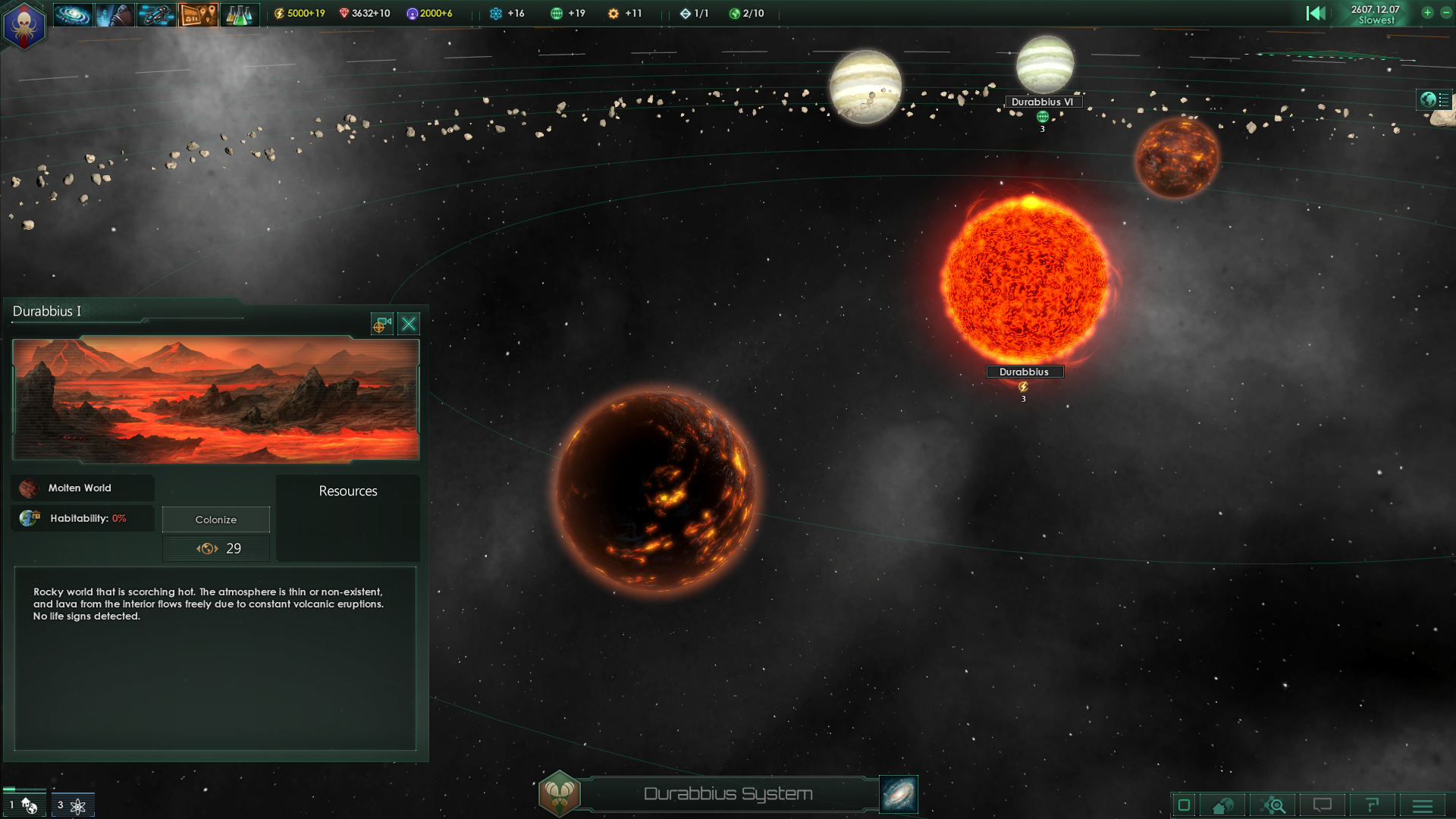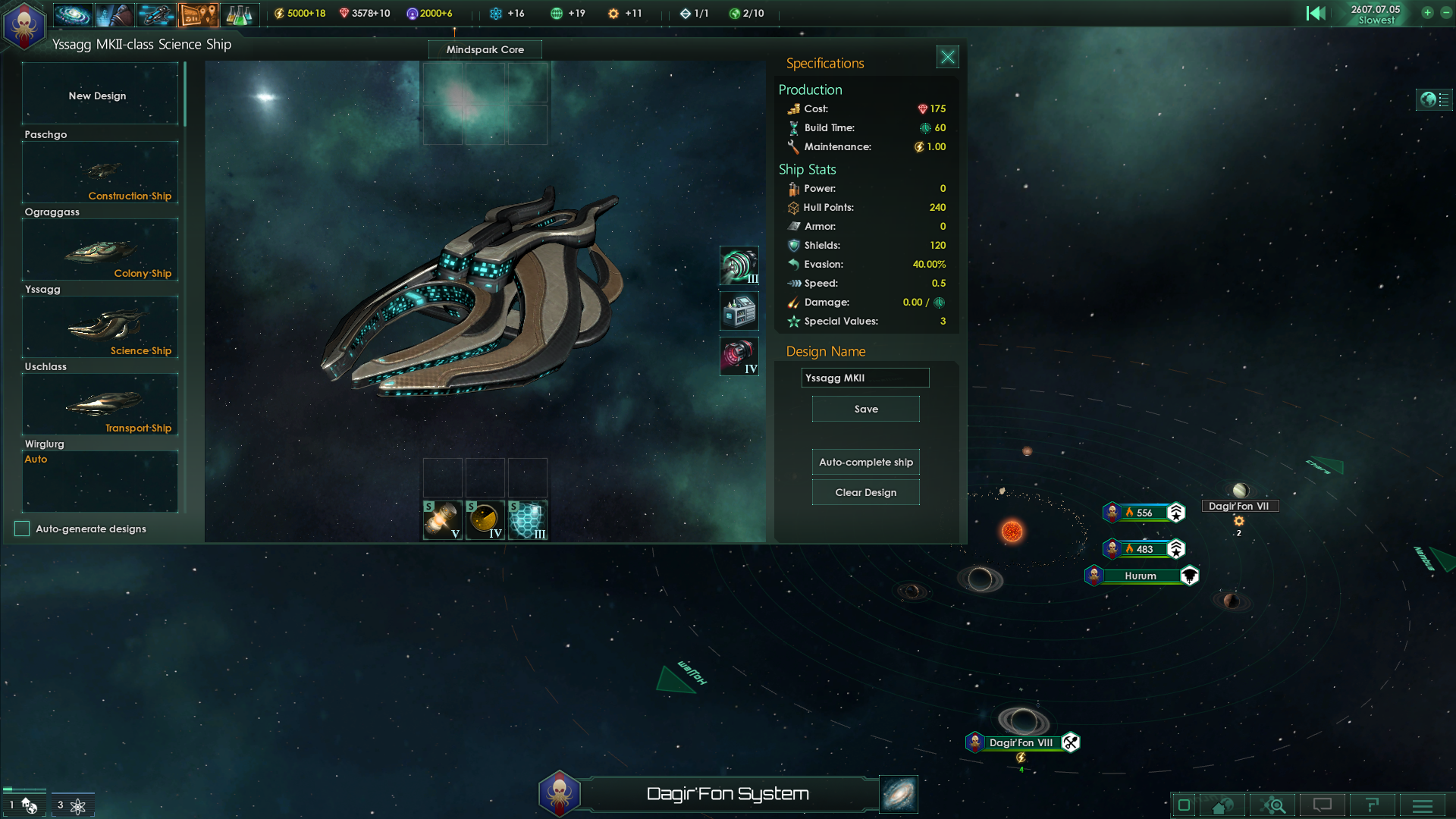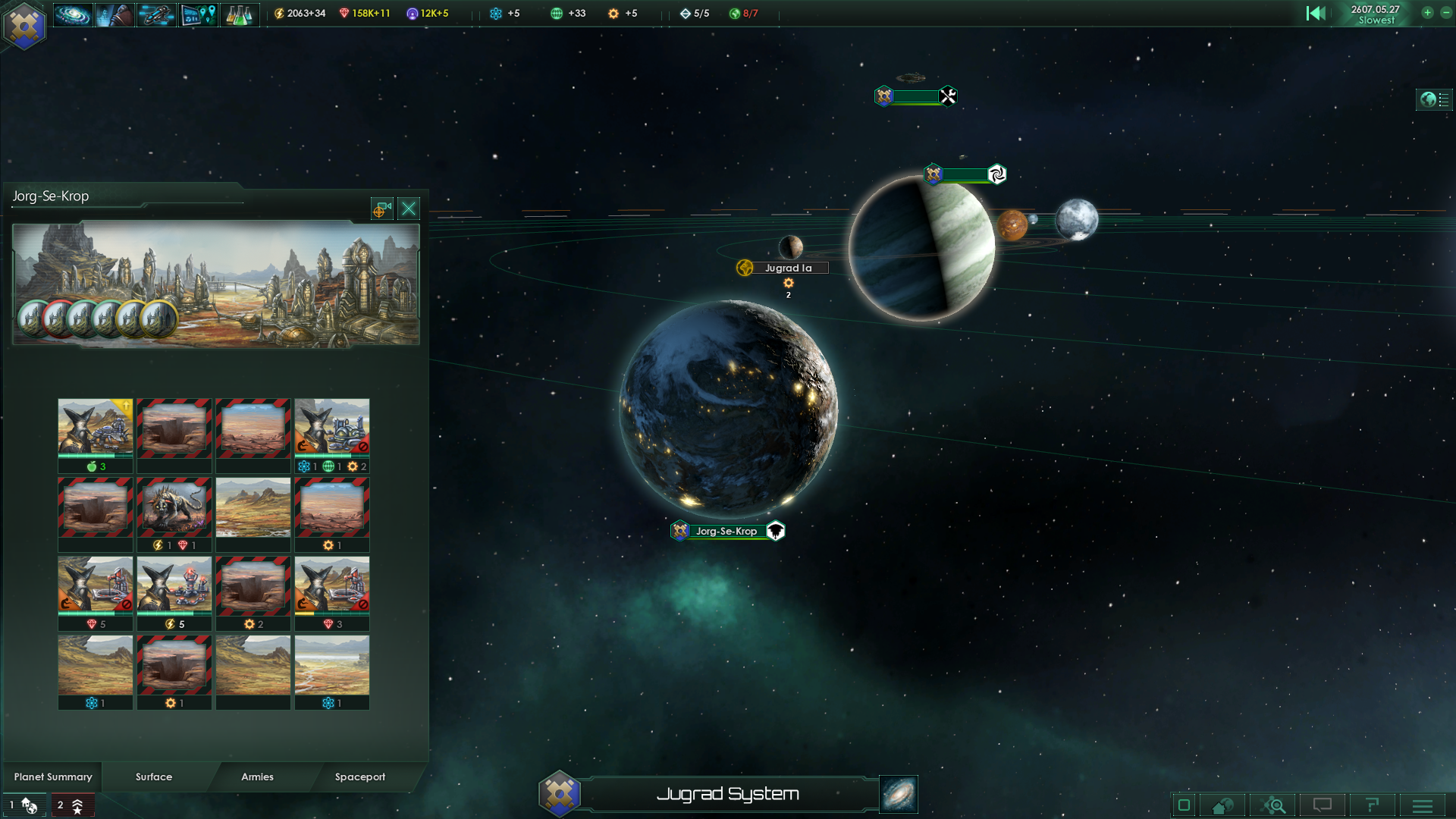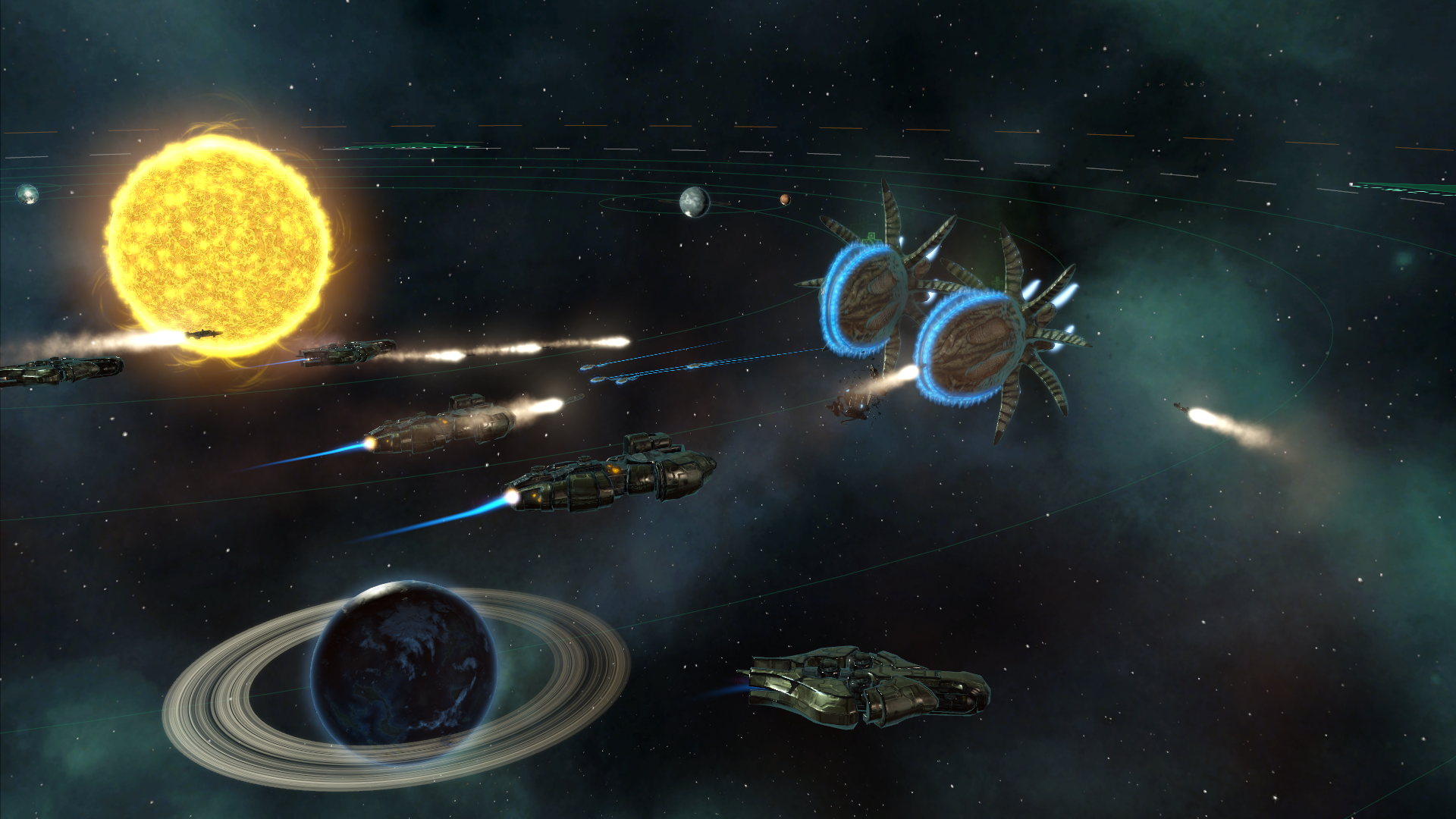Unlocking the best tech in Stellaris might destroy the universe

"Late-game crisis." That's what Henrik Fåhraeus, Game Director at Paradox Interactive, calls events that can occur near the end of upcoming space strategy game Stellaris to make the late game, as he puts it, "interesting." Interesting isn't quite the word I'd use. The late game crises in Stellaris he describes sound both awesome and terrifying, and they typically involve researching technology to the point where it becomes a major threat to organic life.
I got to see a demo of Stellaris at GDC in San Francisco last week. Stellaris, which I've been imagining as Crusader Kings 2 in space, is in fact looking a bit like CK2 in space, though there are some considerable differences. Rather than CK 2's asymmetrical start, where you can choose the size and power of the kingdom you begin with, everyone in Stellaris starts out small. The universe is randomly generated each time you play, as are the alien species you encounter, and while your character does age and die—as in CK 2—you don't have to deal with the matchmaking and marriages of the medieval strategy game.
"The characters aren't that developed," said Fåhraeus when I asked if my alien character will have to find a suitable mate in order to produce an heir. "They're more like Europa Universalis characters. They have traits and skills, but that's it. They don't get married. They can't marry their sister," Fåhraeus said.
"Somebody will mod that in, I'm sure," I said.
"I'm sure," he agreed.

As you struggle to explore and survive in the procedurally generated galaxy, the race to acquire, research, and improve technology comes into play, as it does in many strategy games. Stellaris gives it a new wrinkle, however, with the late-game events that threaten not just the faction that has upgraded its technology, but everyone else in the galaxy as well.
"Certain technologies can be especially dangerous, and they are marked as such in the technology screen when you find them. So it's fine to have, like, toaster-level robotic workers that are not very efficient, but the final tier to AI research makes them better than your normal [population] and smarter and so on, and we all know what happens when you do that, right?
Keep up to date with the most important stories and the best deals, as picked by the PC Gamer team.
"So, there is a risk that somewhere in the galaxy where someone has done this, there will be a robot revolt and that would be a massive uprising by all robots in the galaxy. And if you can't suppress that, it can easily snowball and go out of control. So the mechanical civilization will wipe out all organic life."
These robots are smarter than any organic empire. It's kind of dangerous to leave them alone for too long.
I asked if even the toaster-level robots Fåhraeus mentioned will join the uprising, and was told: maybe. "There is a chance they will. But mainly the ones that are replicants, highest level robots."
The robot uprising sounds more complicated than there simply being a massive army of synthetics trying to wipe out all life. It becomes clear that the head robot didn't just crank the revolt setting up to high and hope for the best. "They will get a hidden home system that you cannot see on the map," said Fåhraeus. "The backstory you are given is basically that they have been planning this for a while, and they've built up a base in a hidden system and you have to trace them back there and destroy their kind of core world to end the revolt forever." And while some conflicts in Stellaris will be able to be resolved peacefully through diplomacy, the solution to the robot problem lies only in military action.
On the other hand, perhaps a universe teeming with murderous, life-destroying robots might not be an entirely bad thing. "Of course, it's kind of an interesting trade-off for you, should you let them run amok destroying your rivals before you intervene. Or not. These robots are smarter than any organic empire. It's kind of dangerous to leave them alone for too long."

So, robots aren't the safest technology to max out during your game. Anything else players should look out for?
"If you're using jump drives on your ships, there's risk that you will tear a hole in reality—that's also one of these dangerous technologies—and something will come through from another dimension."
The idea of these crises is to prevent players from getting too complacent as the game progresses, you give them something unpredictable to deal with in addition to the other factions. "It's supposed to surprise you, throw a wrench in your plans from time to time. Not to the degree you would see in Crusader Kings, where for example, your single heir dies from disease, and that is game over. But, threats that are manageable should pop up from time to time."
Unrestrained research of technology isn't the only way a late-game galactic threat might appear. Even if every faction goes easy on tech research, there are other crises that may be lurking in the wings, such as extra-galactic invaders. "Slightly akin to the Tyranids in Warhammer 40K. Kind of a biological threat to the galaxy. That's not tied to research, actually, that's something that can happen anyway."
If you're using jump drives on your ships, there's risk that you will tear a hole in reality.
These events won't necessarily happen every time you play, according to Fåhraeus. You could play through the game without one of these crises cropping up and it's very unlikely you'll get two in the same game. But, you never know. Plus, you might not have to wait until the end of the game for the galaxy to be introduced to a serious threat.
"For example, I might encounter a ringworld. We have that in the game, it's called Sanctuary. It's guarded by ancient space stations and it's kind of hard to overcome that threat. But it has a whole storyline to it, and there is a risk that can turn into a kind of an early game crisis for the whole galaxy as well."

You'll be able to experience both early and late game crises when Stellaris is released on May 9.

Chris started playing PC games in the 1980s, started writing about them in the early 2000s, and (finally) started getting paid to write about them in the late 2000s. Following a few years as a regular freelancer, PC Gamer hired him in 2014, probably so he'd stop emailing them asking for more work. Chris has a love-hate relationship with survival games and an unhealthy fascination with the inner lives of NPCs. He's also a fan of offbeat simulation games, mods, and ignoring storylines in RPGs so he can make up his own.

